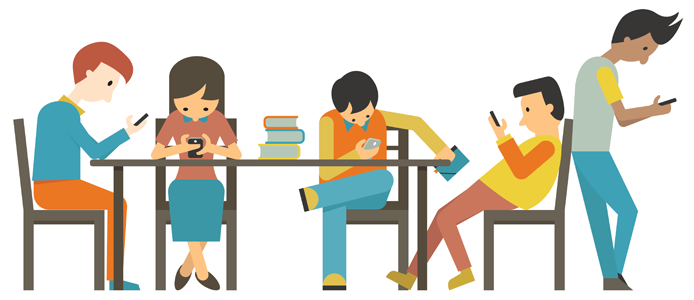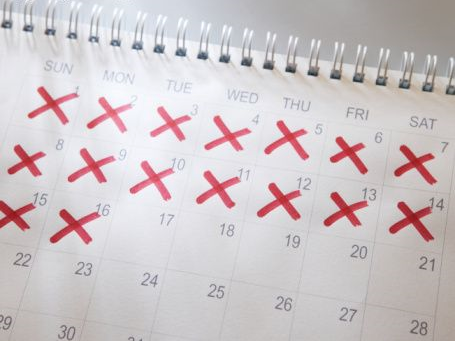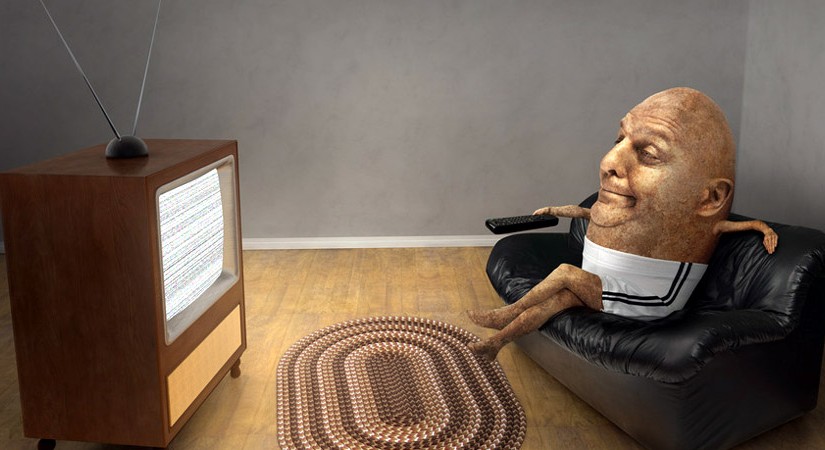Free time, drool! That wonderful chunk of time when we can do ANYTHING we want. Importantly, it as also the time when we DO NOT have to do what someone else expects us to do. But wait! We may not be doing what others require us to do. But are we really spending it on ourselves? Well, sadly we are giving up our free time not by working for someone else, but by following someone else’s story too deeply instead of our own, even if their story isn’t inspiring or important to our own progress.
How we give up our free time

Most of us associate free time with a few common activities. Let’s list them one by one and mention how it takes us away from ourselves. Movies? The story is written by someone, directed by someone else, acted upon by yet someone else. You are simply consuming someone else’s script and paying for it with a big chunk of your life’s time and maybe some hard-earned money. Sports? Except for the fact that it is not reel life like movies, it is still not your life. What’s playing out is Virat Kohli’s, Cristiano Ronaldo’s, LeBron James’ or Roger Federer’s life and we spend yet more hours from our lives following those. News? News is no longer just reporting. It is now sensationalism. As I see it, news are more damaging than movies and sports, because the sensationalism makes the stories go deeper into our minds, form biases and deeply affect our emotions.
Let’s see some more. Fiction books? Someone else’s story, but at least you can take control of your time, by reading it whenever you want and not when some show timings demand your attention. Social networks? Not just distracted by one another person’s life, but several other persons’ lives. While a lot of social networks, like Instagram and Pinterest give you enough control to tighten the screws on what you see on your home feed, services like Facebook and Quora are almost hopeless as their ‘smart algorithms’ take you down irrelevant rabbit holes unless you super-aggressively take control of what you want to see. They show viral content first and, if space permits, may decide to show you what you want to see. Twitter’s performance is somewhere in the middle.
The 30-day detox

In this post, I suggest that you go on a 30-day detox from following others’ lives and make every moment of your free time count towards your own. Why 30? Well let’s look at it this way. Promising to abstain from our addictions forever seems like an impossible promise on day 1. Hence we make a practical commitment to ourselves to abstain from our addictions for just a month. A 30-day avoidance hopefully leads to a permanent lifestyle change. However, you can experiment with different intervals, say 7 days, 15 days, 2 months or anything that you feel is right for you.
You can also experiment with shortening the time you spend on those activities rather than complete avoidance, but in my case, total avoidance was what worked best. Not the case with Priya (my wife).
Earlier, Priya was addicted to reading news, especially sensational politics. She could spend hours reading news, most of which were irrelevant to our lives. And a lot of time was wasted on reading comments. But now, she prefers to catch up with mostly neutral news for just 10 minutes a day instead of getting sucked into a rabbit hole of hyperlinks and comment wars. I don’t read news at all, since I believe that Priya will tell me the most relevant ones.
Similar to Priya’s situation, I was addicted to watching sports events. I would watch live matches happening in faraway Europe, which is four and a half hours behind on timezone. This would sabotage my sleep for years. I started cutting back slowly and now I just don’t watch live sports events at all. I catch up with the scores occasionally, like once in a month. I occasionally watch cut-down highlights of very good games on YouTube during lunch breaks.
What to avoid during the 30 days
Mainstream movies and sitcoms: Mainstream movies and sitcoms are stories of someone else and they do not need to take your precious time for hours. They are best avoided during your detox period.
Sports events: Sports events are like powerful magnets, especially if your country, favourite club or favourite players are in action. But, honestly, watching them adds no value to your life! No sports event is worth your time, even if sports are more ‘real life’ than movies. Secondly, it is very easy to give into the hyped FOMO (Fear Of Missing Out) of live events. You end up destroying your sleep if the event is in another country with a far-away timezone. No need for that. And it’s okay if your friends are raving about last night’s match and you have no clue what went on. You have your life’s priorities figured out. Yaaay. 🙂
Mainstream news covering past events: Presidents and prime ministers getting elected or impeached, soldiers getting killed, film star scandals, wars being declared between two countries in Africa, whose names are impossible to pronounce, hundreds of technological innovations being made every day, huge sums of money being lost in scandals, huge deals and agreements being made between nations. Everything ‘seems’ important. From childhood, we have been conditioned to believe that reading news means to ‘stay informed’ and ‘knowing about the world’. The goal of our 30 day detox is not to ‘stay informed’, but to ‘introduce RELEVANCE’. I have not been reading newspapers or watching news for almost a year and I am not missing anything. Whatever is relevant to me somehow reaches me through some channel of communication, e.g. news about demonitisation in India.
Social Media: This is the time guzzler of the decade. The #1 reason that people suddenly find no time for themselves. Considerable time is saved if we can simply avoid scrolling through the home page of our Facebook, Twitter or Quora feeds. You are definitely allowed to share relevant content with your network of friends and also to interact with people who find your posts useful. Just…. don’t go to that booby-trapped home page feed!
Computer / mobile games: Too much time is spent addictively playing games in a virtual world at the expense of ignoring the real world. Uninstall those time drainers for a month and see how much free time you gain to do things that contribute to your progress.
Going for a booze with friends: This might sound disappointing to your friends and to you, but going out to booze and getting wasted for a night is not productive and you can certainly do much better without substance, sleepless nights and hangovers. The high that you get from booze is temporary and there are much better ways to feel the same kind of high by doing activities such as adventure sports.
The above list is not complete, but it is easy to think of many more such activities.
What to do during the 30 days
Reading top-seller non-fiction books: This is the best investment of your free time towards your own story. I would especially recommend authors like Tony Robbins, Seth Godin, Tim Ferriss, Ryan Holiday, Heath brothers (Dan and Chip) and Charles Duhigg as your life and performance coaches through the pages of their books. These books are life-changing and packed with tiny little and easy to adopt practices that will make you a better person day-by-day.
Carefully curated content using Feedly, Twitter and Youtube: These three tools give you the option to specifically subscribe only to the people / topics that you want to read about. Feedly is the best since it show content from RSS feeds. RSS feed contains content which is released officially from the source and is the most relevant. Youtube is also good if you follow people who post videos on a focused topic and do not get distracted from the purpose of their channels. Twitter has a habit of forcing viral topics down your throat every now and then, but its filter listens if you tell it to shut up. Unfortunately, Facebook doesn’t and that is why I would recommend booting its home page for the month.
Autobiographies: We have all kinds of books written about inspiring people. However, go for the ones that your heroes have written on their own. Autobiographies of your heroes can be a very rich way to dive and explore their minds, the processes and the struggles.
Documentaries: Documentary movies are laser-focused on specific topics such as a person or a theme such as wildlife or travel. There are also sensitive topics or topics that are ignored by mainstream media, but maybe highly relevant to you. Most documentaries can flip your awareness and the way you think about things overnight.
Go out and play: Enough of watching others play on TV or playing in the virtual world of computer games. Let’s hit the field with some friends and work a sweat. It is fun, it is healthy and it is an effective way of bonding with friends.
Journal: Tracking your day on a journal lets you review how you spend everyday. It exposes your behavioural patterns, your priorities and your thought process. By journaling everyday you get to know yourself better. You can see your progress from what you were once to what you are today and what you had to do to make yourself better.
Travel: Since you are not allowed much to do during this month, why not hit the road (or rail?). See new places, meet new people, do new things. And have plenty of stories added to your life, expanding your script. In fact, not just this detox month, you should make travelling a regular habit.
Learn a new skill: 30 days is an excellent period of time to get a head start at a new skill. Cooking, playing an instrument, learning a new language, learning to build software, learning how to market are some things you can consider for the duration.
Participating in workshops and seminars: Call up some friends and attend some life-changing seminars in your city. There are plenty of seminars on technology, entrepreneurship, art forms and leadership in every major city. Your friends and you can learn a lot of things and share notes with each other.
Be a tourist in your own city: Exploring one’s own city can lead to surprising results. You find new places of interest such as museums or libraries tucked away in unknown streets, classes teaching exotic skills, national parks teeming with flora and fauna that you never knew much about, interesting architectural structures and the like. There is so much to learn from one’s own city that can become a part of your own personality and you can be a much better host every time.
Conclusion
As you can see, there is so much to leisure time than simply staring at a screen or drinking till you drop. So many ways in which you can invest in yourself and become a better form of you in the years to come. Leisure time is precious and is a shrinking commodity as your life gets busier. Treat it with the respect that it deserves for just one month and your free time may never look the same again. Go make it count.
How do you spend your leisure time. Let me know in your comments.

I had uninstalled all social media and games apps from my phone and have put my podcast, Kindle and feedly on my home page and are my goto what if I’m bored apps. This has been a great time and energy saver for me !!
Thats great. By limiting and controlling your sources of info, you gain control over what you learn and how you get inspired.